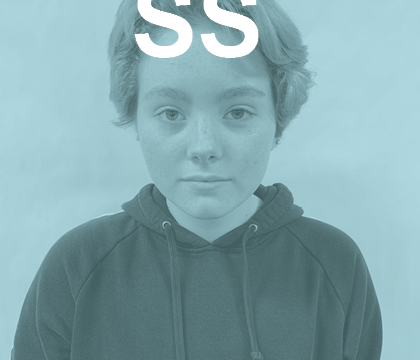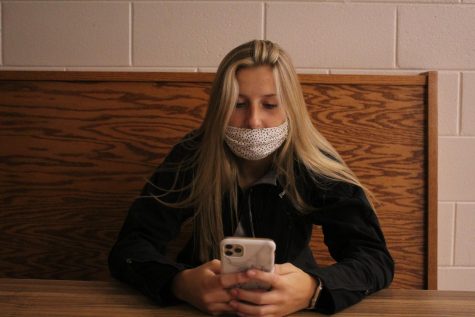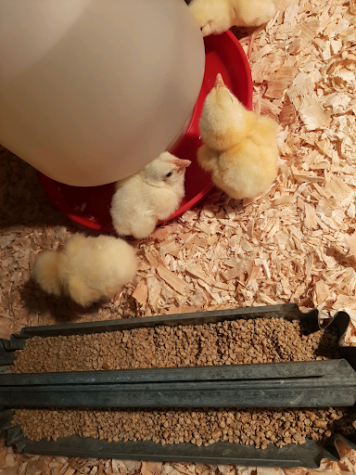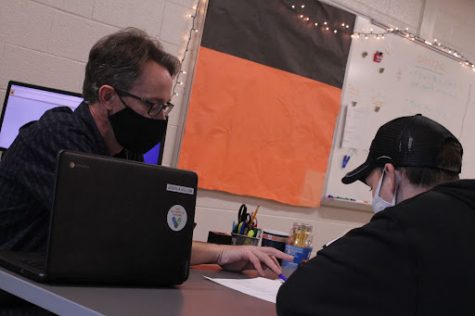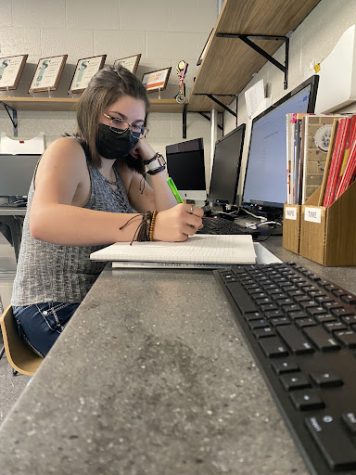Anxiety: the monster in the shadows
It starts off as panic‒you can feel it and its rising. Your nerves don’t make it any better and your hands might start to become shaky. It just kind of crashes down and falls on you, and you might try to get help, but you can not explain it. Your brain makes it hard for you to function and your stomach starts to tighten.
What your feeling classifies as anxiety.
Inheriting traits from parents or traumatic life experiences are some of the triggers for anxiety disorders in adults and teens. Whatever way the disorder was created, it almost always has a negative impact on that person’s life. Positive effects are rare.
“Yeah, its kinda scary,” junior Jacey Gustafson said. “Because, it’s like you feel like everyone is watching you, but like you know it’s not true, and in the back of your head you just know it’s not true, but it makes you feel like you just want to hide.”
Kristine Tye, a family therapist, thinks that someone who tends to be anxious can be very intelligent according to her therapy website. Anxious people may be very good researchers, critical thinkers and analyzers.
Tye suggests that having relatives who struggle with anxiety disorders increase anyone’s chances to inherit anxiety from them, but there is more to it than just inheritance or trauma. If a person also has a physical condition, like a thyroid issue, they may have a higher chance to develop an anxiety disorder according to Tye.
Also, an individual’s personality can be a potential risk in the development of anxiety if that person’s temper is negative or that person avoids anything that may be a danger. Females are twice as likely to have an anxiety disorder than males and anxiety also seems to happen in an earlier stage of a woman’s life than a man’s, according to the Anxiety and Depression Association of America (ADAA).
The ADAA reports that the contrast in brain chemistry and the neurotransmitter for serotonin might account for some of these differences.
HelpGuide, a mental health and wellness website, talks about the typical normal worry that everyone experiences at least once in their life. The Guide reports that normal worry does not get in the way of the person’s everyday activities; if affected by this worry, he or she is able to control it, the worries do not cause a huge amount of distress for them just an unpleasant feeling, their concerns are mostly limited to a small amount of realistic troubles and the worrying only lasts a short amount of time.
Junior Danielle Barbour notices that during the heavier moments of her anxiety there is a lot of distress. It starts off with one distressful thought, then another and another no matter how unrealistic those thoughts may be.
On the other hand, people with generalized anxiety disorder (GAD) generally have the opposite.
Symptoms of GAD might include, but is not limited to, an upset stomach, a racing heart, sweating, trembling, irritability and more. A Harvard Health article reports that these physical symptoms may affect the person’s health in many ways, an example of one of the possible health problems would be them having more risks of heart attacks or problems with their heart and blood vessels.
There are many possible ways teens can gain mindfulness to their anxiety, first they need to accept and be aware that they cannot control everything. Also, When they find themselves thinking negative thoughts they should try to make an effort to turn those thoughts.
Kathleen Riley‒a teacher who leads a team taught-algebra class, an academic support class that also functions as a study hall, and a life skills class mainly for students who are either cognitively impaired or just generally need help‒understands this need.
Riley started zone of regulation in her classroom, where the student identifies where she or he is at personally within their emotional range.
The zones system asks students to check in at the front of the classroom in numbered pockets indicating emotions like “feeling pretty good, excited, anxious, tired, or stressed.”
GAD has affected over 40 million people, ages 18 and older, in just the United States alone according to the ADAA.
“Anxiety doesn’t wait for when it’s convenient for you. It doesn’t care if you’re doing something important or not, it’ll hit when it wants to,” junior Danielle Barbour said.



